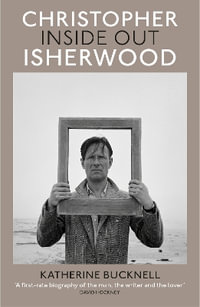Modern Greece, constructed by the early 19th-century ideals and ideas associated with Byron, has been haunted, holy ground in English and American literature for almost two centuries. This text analyzes how authors employ ideas about romantic nationalism, gender politics, shifts in cultural constructions, and literary experimentation to create variations of Greece to suit changing eras. Complementing and complicating Edward Said's view of relations between East and West, Roessel discusses the way perceptions of modern Greece have been shaped by historical events, arguing that the Greek struggle for independence became a touchstone in the English and American imagination of the 19th century, and that 20th-century Greece became a symbol of the attitudes and ideals that many believed caused the Great War.
Industry Reviews
"Based on dauntingly wide reading, David Roessel's study provides an astute, convincing and unsentimental survey of the ways in which anglophone writers' reactions to Greece have changed over the years.... All philhellenes will find In Byron's Shadow absorbing."--Times Literary Supplement
"Roessel demonstrates in staggering detail that most writers about Greece have failed abysmally by seeking the ideal rather than relishing the more complex realities of the place...Roessel's book possesses an importance beyond the academic field of neo-hellenism or that of postcolonial studies. It is about the imagination, and through its particulars involves us with the problem of any literary endeavor...In Byron's Shadow is not only an essential
contribution to the study of Greece but a lively and compelling story of reading, writing, the imagination, and what these things have to do with historical reality."--The Hudson Review
"This book is a sheer delight. It is rare to come across such a combination of readability, anecdotal pleasure, intelligence, research..., erudition and passion. Roessel's book is no mere survey and synopsis of literature, though of course there is a great deal of this. He pursues a number of interesting theses with keen intelligence, and the pages are dotted with insights--too many to summarize."--Bryn Mawr Classical Review
"At a time when books on Byron continue to proliferate, it is a pleasure to be able to recommend a new study which is well researched, thoughtful, and careful, and which employs the most modern analytical approaches.... [In Byron's Shadow] should be regarded as essential reading by everyone interested in the modern history of Greece.... Roessel's book joins the small group of works which should be on the shelves of every philhellene."--William St.
Clair, Anglo-Hellenic Review
"In Byron's Shadow charts with enormous diligence and unfailing insight a subject hitherto inchoate. Refreshingly free from overt political or theoretical bias, this carefully-researched book constitutes a major contribution to the burgeoning field of Orientalism.... [It] takes its place alongside venerable classics by Gilbert Highet, J.A.K. Thompson, and Terence Spencer. Historical scholarship at its best, this finely-balanced overview should by its
insights and range of reference open up new areas for investigation.... Splendid work!"--The Byron Journal
"In Byron's Shadow...provides a definitive account of Anglo-American perceptions of modern Greece from Byron's day to the twentieth century."--Studies in English Literature, 1500-1900
"Based on dauntingly wide reading, David Roessel's study provides an astute, convincing and unsentimental survey of the ways in which anglophone writers' reactions to Greece have changed over the years.... All philhellenes will find In Byron's Shadow absorbing."--Times Literary Supplement
"This book is a sheer delight. It is rare to come across such a combination of readability, anecdotal pleasure, intelligence, research..., erudition and passion. Roessel's book is no mere survey and synopsis of literature, though of course there is a great deal of this. He pursues a number of interesting theses with keen intelligence, and the pages are dotted with insights--too many to summarize."--Bryn Mawr Classical Review
"At a time when books on Byron continue to proliferate, it is a pleasure to be able to recommend a new study which is well researched, thoughtful, and careful, and which employs the most modern analytical approaches.... [In Byron's Shadow] should be regarded as essential reading by everyone interested in the modern history of Greece.... Roessel's book joins the small group of works which should be on the shelves of every philhellene."--William St.
Clair, Anglo-Hellenic Review
"Roessel demonstrates in staggering detail that most writers about Greece have failed abysmally by seeking the ideal rather than relishing the more complex realities of the place...Roessel's book possesses an importance beyond the academic field of neo-hellenism or that of postcolonial studies. It is about the imagination, and through its particulars involves us with the problem of any literary endeavor...In Byron's Shadow is not only an essential
contribution to the study of Greece but a lively and compelling story of reading, writing, the imagination, and what these things have to do with historical reality."--The Hudson Review
"In Byron's Shadow charts with enormous diligence and unfailing insight a subject hitherto inchoate. Refreshingly free from overt political or theoretical bias, this carefully-researched book constitutes a major contribution to the burgeoning field of Orientalism.... [It] takes its place alongside venerable classics by Gilbert Highet, J.A.K. Thompson, and Terence Spencer. Historical scholarship at its best, this finely-balanced overview should by its
insights and range of reference open up new areas for investigation.... Splendid work!"--The Byron Journal
"In Byron's Shadow...provides a definitive account of Anglo-American perceptions of modern Greece from Byron's day to the twentieth century."--Studies in English Literature, 1500-1900

























